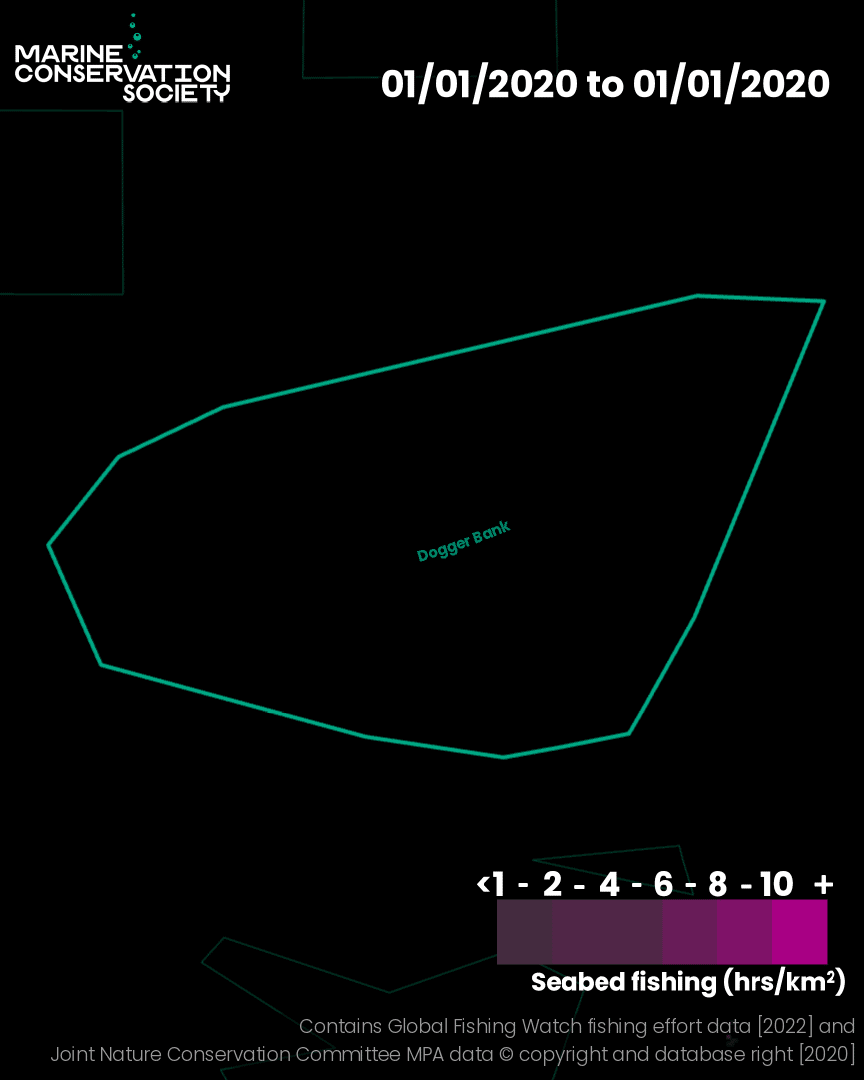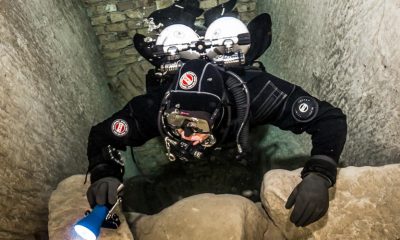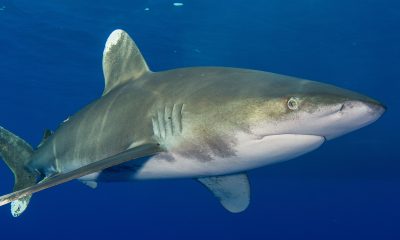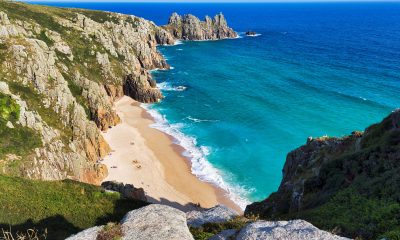Marine Life & Conservation
Marine unProtected Areas: UK’s damaged seas still missing crucial protection
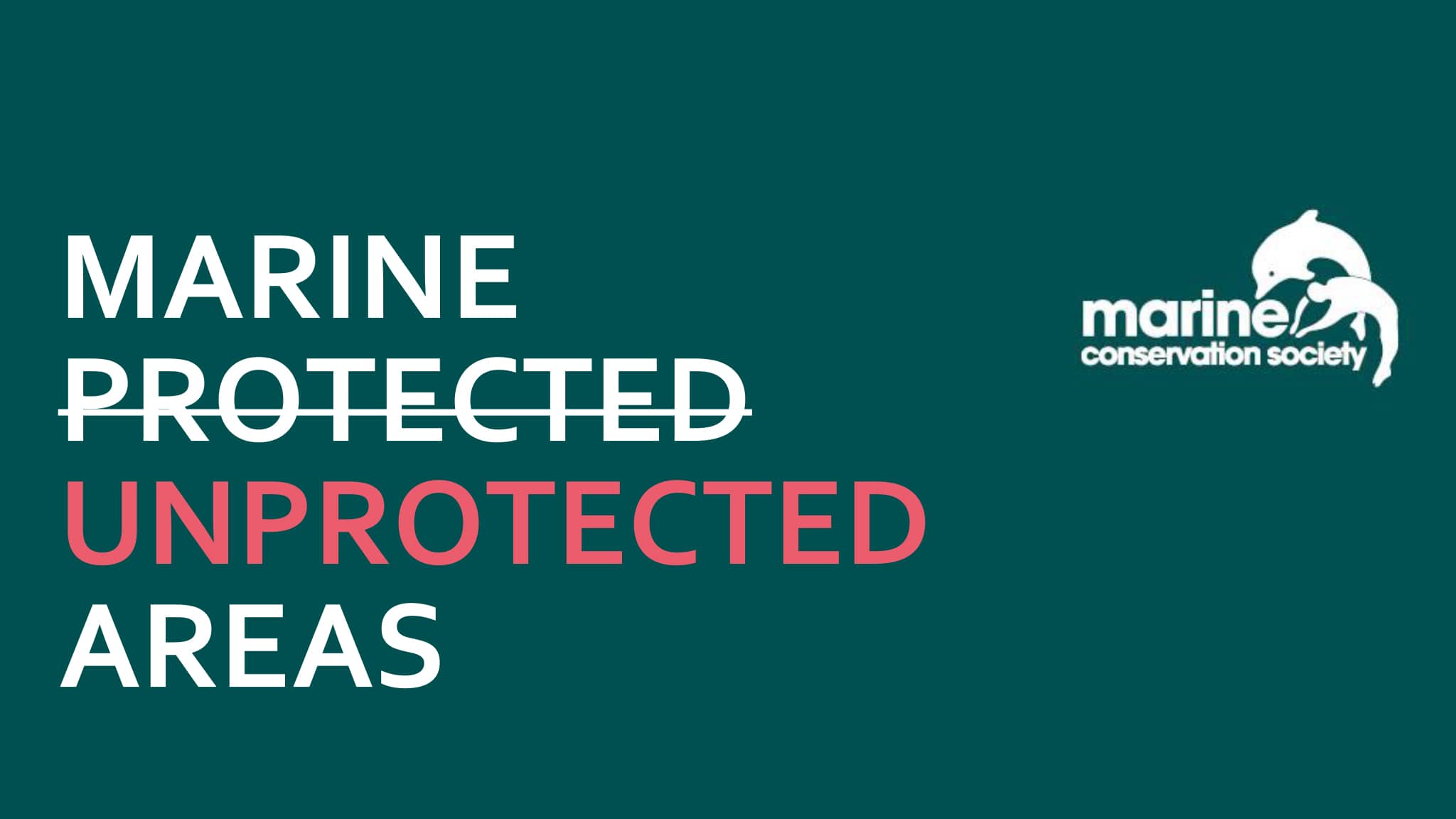
 Broken promises by UK Government leaves England’s seabed MPAs at risk
Broken promises by UK Government leaves England’s seabed MPAs at risk
- Over 5,000 hours of fishing in Dogger Bank MPA in the last year
- 10 Minute Rule on bottom-trawling in MPAs on 1st March by Chris Grayling MP
The Marine Conservation Society’s analysis of fishing activity in Marine Protected Areas over the last year highlights the urgent need for protection of England’s seas in more than name.
A slew of broken promises and delayed actions are putting our seas at risk as damaging fishing continues to degrade England’s fragile seabed habitats.
The Marine Conservation Society is calling for the public’s support in banning damaging fishing, like bottom trawling, from England’s offshore MPAs designed to protect the seabed.
On 1st February 2021, the Marine Management Organisation (MMO) launched a public consultation on a proposed byelaw. This byelaw would protect the Dogger Bank Marine Protected Area (MPA), alongside three other sites, from bottom-towed fishing gear. Usually these are passed within 12 months by the Secretary of State. Yet over one year later, no management measures have been put in place.
Dr Jean-Luc Solandt, Principal Specialist in MPAs at the Marine Conservation Society said: “There is no sign of the promised timetable to ensure management for England’s entire list of 40 offshore MPAs. At current rates, it will take over a decade to get management in place. MPAs are currently a lie. For the sake of humanity, society, climate, food security, clean waters and indeed the law – we need action immediately.”
On 1st March 2022, Chris Grayling MP will raise a 10 Minute Rule motion in Parliament calling for fast-paced action from Government. Grayling will propose a bill to ban bottom trawling in MPAs, except for in exceptional circumstances, within 12 months.
The 10 Minute Rule illustrates support within the Conservative party and beyond for action on Marine Protected Areas. But while further delays are faced, damaging fishing activities, like bottom trawling, continue to degrade fragile seabed habitats.
The Marine Conservation Society’s analysis of fishing activity in Dogger Bank over the last year found fishing activity, like bottom trawling, had increased fivefold compared to historical rates. While the site’s protection was being discussed, it was in fact even more exploited.
Dogger Bank MPA has the capacity to store the most carbon of all English MPAs – equivalent to 2.5 million return trips from London to Sydney.
While bottom-towed fishing gear is still permitted in sites like Dogger Bank, more carbon is released from the seabed into the ocean, reducing its ability to buffer the effects of climate change. Since 1st February 2021, Dogger Bank has experienced 5,055 hours* of fishing, including bottom trawling.
Located about 120 kilometres east of Hull, Dogger Bank has been heavily fished for decades. Authorities first recognised the need for better protections in 2011, but failed to act.
Frith Dunkley, MPA Researcher at the Marine Conservation Society said: “In the year since this byelaw banning bottom-towed fishing gear from Dogger Bank MPA was proposed, the sandbank habitat and the species it was designated to protect have continued to be damaged by fishing activity, degrading marine life and removing ecologically important species such as sandeels.
“At 5 times the size of the Lake District National Park, Dogger Bank could be the first large offshore Marine Protected Area in England where a ban on damaging fishing methods is put in place. Mussels, oysters, fish, seabirds, whales, dolphins, seals and more would all benefit from the proposed management measures. It’s time for them to actually be put into action!”
Dr Solandt said: “Government inaction on marine protection goes beyond Dogger Bank. As of late 2021, just 6% of England’s Marine Protected Areas, designated to protect the seabed, are legally protected from damaging fishing activity, like bottom trawling. There have been countless international commitments to deliver well-managed protected areas across Europe since 2010. But here we are, 12 years on, with little to show for it.”
To read the Marine Conservation Society’s 2021 Marine unProtected Areas report, and learn more about fishing in Marine Protected Areas, please visit the charity’s website.
Marine Life & Conservation
Leading UK-based shark conservation charity, the Shark Trust, is delighted to announce tour operator Diverse Travel as a Corporate Patron

 Corporate Patrons provide a valuable boost to the work of The Shark Trust. The Trust team works globally to safeguard the future of sharks, and their close cousins, the skates and rays, engaging with a global network of scientists, policymakers, conservation professionals, businesses and supporters to further shark conservation.
Corporate Patrons provide a valuable boost to the work of The Shark Trust. The Trust team works globally to safeguard the future of sharks, and their close cousins, the skates and rays, engaging with a global network of scientists, policymakers, conservation professionals, businesses and supporters to further shark conservation.
Specialist tour operator Diverse Travel has operated since 2014 and is committed to offering its guests high quality, sustainable scuba diving holidays worldwide. Working together with the Shark Trust will enable both organisations to widen engagement and encourage divers and snorkellers to actively get involved in shark conservation.
“Sharks are truly at the heart of every diver and at Diverse Travel, we absolutely share that passion. There is nothing like seeing a shark in the wild – it’s a moment that stays with you forever!” says Holly Bredin, Sales & Marketing Manager, Diverse Travel.
“We’re delighted to celebrate our 10th year of business by becoming a Corporate Patron of the Shark Trust. This is an exciting partnership for Diverse and our guests. We will be donating on behalf of every person who books a holiday with us to contribute towards their vital shark conservation initiatives around the world. We will also be working together with the Trust to inspire divers, snorkellers and other travellers to take an active role – at home and abroad – in citizen science projects and other activities.”
Paul Cox, CEO of The Shark Trust, said:
“It’s an exciting partnership and we’re thrilled to be working with Diverse Travel to enable more divers and travellers to get involved with sharks and shark conservation. Sharks face considerable conservation challenges but, through collaboration and collective action, we can secure a brighter future for sharks and their ocean home. This new partnership takes us one more valuable step towards that goal.”
For more information about the Shark Trust visit their website here.
For more about Diverse Travel click here.
Marine Life & Conservation
Shark Trust Asks Divers to help with Shark Sightings this Global Citizen Science Month

 Whether you are stuck for ideas of what to do with the kids or are off on the dive trip of your dreams. You can get involved in Citizen Science Month and help the Shark Trust by providing vital data about sharks are rays both close to home and further afield.
Whether you are stuck for ideas of what to do with the kids or are off on the dive trip of your dreams. You can get involved in Citizen Science Month and help the Shark Trust by providing vital data about sharks are rays both close to home and further afield.
In addition to reporting the sharks and rays you see on your dives, the eggcases you find on the beach, the Shark Trust is looking for some specific data from divers who are asked to report any Oceanic Whitetip and Basking Sharks.
Oceanic Whitetip Sharks
The Shark Trust are looking specifically for Oceanic Whitetip Shark sightings over the coming weeks and months. So, if you are diving anywhere in the world, please report your sightings via the website or app.
Website: https://recording.sharktrust.org/
App: Search The Shark Trust in your app store
The Oceanic Whitetip. Known for their incredibly long dorsal and pectoral fins, this species was once the most abundant oceanic-pelagic species of shark on the planet.
Large and stocky, they are grey or brown above, and white below and famous for their huge rounded first dorsal fin and paddle-like pectoral fins. The fins also highly prized within the shark fin trade. Whilst they are mostly solitary, Oceanic Whitetips do occasionally hunt in groups.
An inquisitive species, they were easy prey for fisheries. Combined with their low reproductive rate, they were inevitably at high risk of population depletion. And declines of up to 99% have been reported in certain sea areas. They are listed as Critically Endangered on the IUCN Redlist (2019).
Conservation efforts to discourage further declines include listing on CITES Appendix II and CMS Appendix I. They’re also the only species prohibited from take by all the Tuna RFMOs (Regional Fisheries Management Organisations). However, these measures do not mean that Oceanic Whitetips are not still caught – whether targeted or as bycatch – in some parts of the world. With populations declining at such a high rate, effective implementation of management measures is essential to ensure that the species can recover.
If you are lucky enough to get an image of an Oceanic Whitetip and you record your sighting on the Shark Trust app or website YOU CAN WIN! All images submitted with sightings, that also give consent to use in conservation messaging, will be in with a chance to win an Oceanic Whitetip T-shirt and mug. The competition will run until the end of “Shark Month” in July – so keep those sightings (and images) coming in.
Basking Sharks
Basking Shark (Cetorhinus maximus) season is upon us, and the Shark Trust is asking everyone to keep an eye out for these majestic giants over the summer months. If you see any, you can record your sighting to the Basking Shark Sightings database.
Each year, these mighty fish return to British waters to feed on plankton. You may see one, (or a few if you’re really lucky) from around April-October. They can be seen feeding at the surface of the water, where they look like they’re basking in the sun. Thus, their name!
Sighting hotspots around the British Isles include southwest England, Isle of Man, north coast of Ireland, and western Scotland. The Sea of the Hebrides is the most prolific sightings area in Scotland, but they have been spotted all around the coast and have even ventured into some of the sea lochs. The Shark Trust has received thousands of sightings since the Basking Shark project began, but more data is needed to truly understand what is going on with population numbers and distribution. You can help by recording your sightings this summer.
Great Eggcase Hunt
The Shark Trust has an Easter Egg Hunt with a difference for you to try. Take part in the Great Eggcase Hunt and get involved with a big citizen science project that helps shark, ray and skate conservation. And it’s an enjoyable activity for all the family.
The Shark Trust also want snorkellers and divers to record their underwater eggcase findings. Underwater records help pinpoint exactly where sharks and skates are laying their eggs and can help link to beach records. Learning the depth and substrate that they lay on also helps better understand the species.
Find out more: https://www.sharktrust.org/great-eggcase-hunt
Whether you are diving, snorkelling or exploring on the beach you can take part in Citizen Science Month and get actively involved in shark and ray conservation. Find out more: www.sharktrust.org
-

 News3 months ago
News3 months agoHone your underwater photography skills with Alphamarine Photography at Red Sea Diving Safari in March
-

 News2 months ago
News2 months agoCapturing Critters in Lembeh Underwater Photography Workshop 2024: Event Roundup
-

 Marine Life & Conservation Blogs2 months ago
Marine Life & Conservation Blogs2 months agoCreature Feature: Swell Sharks
-

 Blogs2 months ago
Blogs2 months agoMurex Resorts: Passport to Paradise!
-

 Blogs2 months ago
Blogs2 months agoDiver Discovering Whale Skeletons Beneath Ice Judged World’s Best Underwater Photograph
-

 Gear News3 months ago
Gear News3 months agoBare X-Mission Drysuit: Ideal for Both Technical and Recreational Divers
-

 Gear Reviews2 months ago
Gear Reviews2 months agoGear Review: Oceanic+ Dive Housing for iPhone
-

 Marine Life & Conservation2 months ago
Marine Life & Conservation2 months agoSave the Manatee Club launches brand new webcams at Silver Springs State Park, Florida


